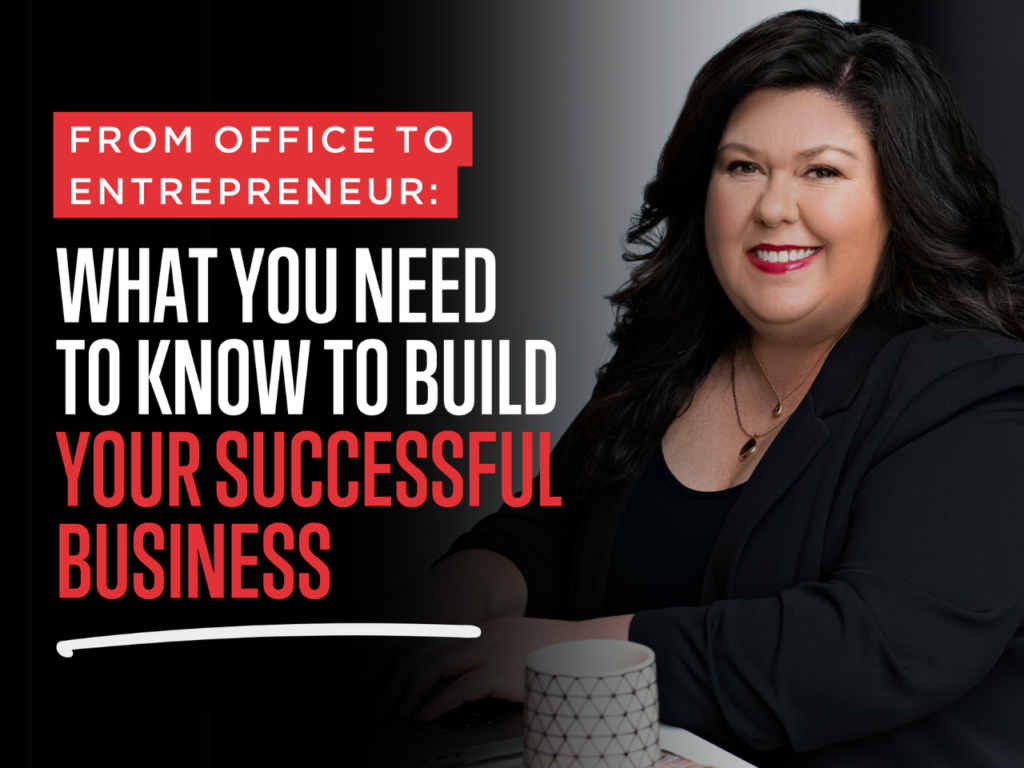Starting a business can be an exhilarating and life-changing endeavour, but what do you do if you have the entrepreneurial spirit burning inside you, yet lack a concrete business idea? You may be thinking “I want to start a business but have no ideas.” This is a common stumbling block for many aspiring entrepreneurs.
Whether you are a professional who is tired of the 9-5 grind or just starting out in your career, there is a business that is suited for you. The key is to leverage your unique skills, experiences, and passions to identify a niche that not only needs filling but also excites you. It’s about finding the intersection of what you love, what you are good at, and what people are willing to pay for. With determination and the right approach, every prospective entrepreneur can discover their path to business success.
We’re going to explore pragmatic steps you can take to discover the right business idea that resonates with your passions, skills, and the market’s needs.

The Entrepreneurial Mindset
Adopting an entrepreneurial mindset is akin to cultivating a fertile garden where ideas can blossom. In this landscape, you cannot underestimate the importance of having a positive mindset. A can-do attitude not only helps in overcoming challenges but also in recognizing opportunities that are often hidden in plain sight. It encourages risk-taking, critical thinking, and the resilience needed to push through periods of doubt and setbacks. Nurturing a mindset that embraces growth and learning will equip you to sow the seeds of innovation and harvest the fruit of lasting business success.
Resilience is not just a buzzword; it’s a crucial element of the entrepreneurial journey. As you wade through uncharted business waters, you’ll undoubtedly face obstacles that test your resolve. Whether it’s financial hurdles, market competition, or personal doubt, a resilient mindset acts as your anchor, helping you stay focused and persistent. Embracing failure as a learning opportunity rather than a setback can transform challenges into stepping stones towards your ultimate goal. Remember, the most successful entrepreneurs are not those who never fail, but those who never give up.
The first step is not to find an idea; it’s to prepare your mindset to recognize business opportunities. Like fertile soil to a seed, an entrepreneurial mindset can nurture the smallest concept into a viable business plan.
Before diving into potential business concepts, reflect on your motivations for wanting to start a business. Is it financial independence, a desire to solve a common problem, or the freedom to work under your own terms? Your “why” will serve as the guiding light, keeping you motivated when the path gets challenging.

Understanding your ‘why’ will help you identify and prioritize opportunities that align with your values and goals, providing a clear roadmap to guide your business decisions. This self-awareness ensures that the endeavours you pursue are not just profitable but also fulfilling on a personal level. It acts as a beacon during tough times, reminding you of the larger purpose behind your efforts, and empowers you to make choices that contribute to your overarching vision.
Stay curious about the world around you. Follow industry trends, read books on various subjects, listen to podcasts, and attend webinars. Not only does this broaden your knowledge, but it also increases the chance of stumbling upon a brilliant business idea.
Becoming an entrepreneur marks the start of an extensive learning journey that never truly ends. The world of entrepreneurship is constantly evolving, with new technologies, consumer preferences, and economic climates shaping the way businesses operate. As an entrepreneur, you must embrace the idea of being a lifelong student, continually adapting and acquiring new skills to keep your business agile and competitive. This commitment to personal and professional growth fosters innovation and resilience, which are critical to long-term success.
Identifying Your Niche: Where Passion Meets Demand
Discovering your niche involves identifying a specialized area within a broader market where your interests and the specific needs of a target audience intersect. A well-defined niche enables you to focus your offerings and expertly cater to the preferences of a particular segment, establishing yourself as a go-to specialist rather than a generalist. This focused approach often leads to enhanced customer loyalty, reduced competition, and a clearer understanding of who your audience is, making your marketing efforts more effective and efficient.

To carve out your unique niche, you should keenly observe where your personal passions align with existing consumer demand. Begin by assessing your own skills and interests, and then conduct market research to pinpoint what customers are seeking but are currently underserved. This confluence of passion and market need creates a sweet spot for your business to thrive, providing a strong foundation for developing a loyal customer base and a distinct brand identity. With a clear niche, you can tailor your products or services to become synonymous with quality and expertise within your chosen field.
Here’s how to pin down that sweet spot:
Audit Your Skills and Passions: List your skills, interests, and areas where others often seek your advice. This self-audit can help you spot the foundation upon which you could build your business.
Research Market Trends: Look for industries showing growth or underserved market needs. Tools such as Google Trends, market research reports, and social listening platforms can expose gaps in the market ripe for innovation.
Validate Ideas Through Networking: Engage with online communities, attend industry conferences, or join local business groups. Speaking with potential customers and like-minded individuals can offer insights into what people need and are willing to pay for.
It’s crucial not to underestimate the importance of demand when deciding the focus of your business. Passion alone won’t translate to profit if there’s insufficient consumer interest. To ensure longevity and profitability, market demand should guide your decision-making process. Use data-driven analytics to gauge the audience’s needs and continually adapt your offerings to meet those needs. Remember, a niche with a hungry market not only promises a return on investment but also strengthens the sustainability of your business.

Taking the Leap: Brainstorming and Validating Business Ideas
With a clear understanding of your niche, it’s time to brainstorm business ideas and validate their potential.
Brainstorm Without Limits: Organize a brainstorming session where no idea is too silly or too grand. Use mind maps or a whiteboard to jot down everything that comes to mind, and then narrow your focus to the most promising concepts.
Validate Through MVPs: Create a Minimum Viable Product (MVP) or service offer to test your ideas with minimal risk. Feedback from these early offerings can be invaluable for refining your business idea.
Iterate Based on Feedback: Take the feedback seriously and be prepared to pivot or iterate on your initial idea. It’s often the adaptations and refinements that lead to a successful business model.
Brainstorming is the critical creative process where every idea, regardless of its initial quality, holds value. It’s the crucible in which bad ideas often spark the brilliance of good ones. Encourage your team to think freely and voice even the most out-there suggestions; you never know when a seemingly off-the-mark idea will evolve into an innovative business solution that perfectly captures what the market desires. Embracing this dynamic approach to idea generation can be the catalyst for uncovering truly exceptional business concepts.

Drafting the Blueprint: Planning Your Business
Once you’ve settled on an idea, flesh it out with a business plan. A well-thought-out business plan can help crystallize your thoughts and lay out the path to launch and scale.
Research Your Competition: Understand who else is doing what you aim to do and figure out how to differentiate your offering. Sometimes, a unique selling point (USP) is all it takes to stand out in a crowded market.
Financial Forecasting: How will your business make money, and what are the projected costs? Developing a solid financial plan is crucial to understanding the viability and scalability of your business.
Marketing and Sales Strategy: Outline how you plan to reach your target market and what sales channels will be most effective for your product or service.
Marketing and sales strategies cannot be an afterthought; they are at the very heart of a business’s survival and growth. Your ability to articulate the value of your product or service and to reach the right audience through effective channels can mean the difference between obscurity and success. These strategies should be designed to reflect not only what you are selling but also the story and mission behind your brand. It’s this narrative that often resonates with consumers and creates loyal customers who are integral to the long-term prosperity of the business.
Despite the pivotal role that marketing and sales strategies play in a business’s growth, effective financial management remains the cornerstone of maintaining business sustainability. Without a vigilant eye on cash flows, budget allocation, and expense tracking, even the most popular brands can quickly find themselves in jeopardy. It is through judicious financial oversight that a business ensures not just its presence in the market, but its ability to weather economic fluctuations and invest in future expansion. Hence, mastering the art of financial management is more than a necessity; it’s a continuous commitment to the long-term health and prosperity of your enterprise.

The Power of Persistence: From Idea to Reality
Remember, ideas are just the starting point. It’s the execution that will determine your success. Be prepared for setbacks and stay resilient. Many successful businesses were not their founder’s first idea, but instead the result of continuous learning and persistence.
Entrepreneurship is as much an emotional journey as it is a professional one. It will test you in ways you may not expect, pushing the boundaries of your emotional resilience. As an entrepreneur, you’ll face daily challenges that require not only technical skills and business acumen but also considerable emotional strength. The highs of securing a new client or launching a successful product are often balanced by the lows of financial stress, difficult personnel decisions, and the pressure of constant problem-solving. Embracing this emotional rollercoaster is part of what it means to be an entrepreneur, and those who learn to navigate these waters with composure and adaptability often emerge stronger and more prepared for the demands of business leadership.
In light of these realities, it’s critical that you do not give up on your journey. The resilience to push through adversity is often what separates successful entrepreneurs from those who fall short. Remain steadfast in your vision, adapt where necessary, and always keep moving forward. Every challenge overcome is a testament to your determination and a step closer to turning your entrepreneurial dreams into tangible achievements.
Despite popular narratives, the myth of overnight success in entrepreneurship is often just that — a myth. Behind most stories heralded as instant victories are years of unseen effort, trial, and iterative refinement. This hidden groundwork lays the foundation for what eventually may seem like a sudden rise to outsiders. The reality is that success typically emerges from long-term dedication, a series of small wins, and frequent failures that eventually lead to a tipping point. Aspiring entrepreneurs should take heart in knowing that persistence and patience are the unsung heroes of most success stories.

Belief in one’s vision is a force that drives progress. It’s the certainty you hold during the late nights, the unwavering faith amidst the setbacks, that propels your venture forward. Truly, if you believe in what you’re doing, success isn’t just a possibility; it becomes an eventual reality. The path may not be straightforward, and the timeline might differ from your expectations, but a genuine belief in your mission provides the stamina needed to persevere until your efforts come to fruition.
Conclusion
Finding the right business idea when you have none might seem daunting at first, but it’s a hurdle that many have overcome before you. By cultivating an entrepreneurial mindset, identifying your niche, validating your ideas, and meticulously planning your business, you position yourself for success. Take it one step at a time and remember: every entrepreneur began with a single step toward their dreams.
Do you need help finding the perfect business idea that resonates with your skills and passions? You’re not alone, and we’re here to support you!
Join us in our “From Office to Entrepreneur” course today, where we’ll guide you through the process of discovering a business concept that’s uniquely suited to you.
This course is designed to help you explore various options, uncover your true potential, and set you on the path to entrepreneurial success with confidence.
Don’t let uncertainty hold you back—take the first step towards your new business journey by enrolling now!




One response to “So You Want to Start a Business But Have No Ideas? Here’s What to Do Next!”
[…] Selecting the right side hustle idea is a critical first step. It should align with your skills, interests, and available time. Here are several exercises to help you uncover your ideal side hustle: […]